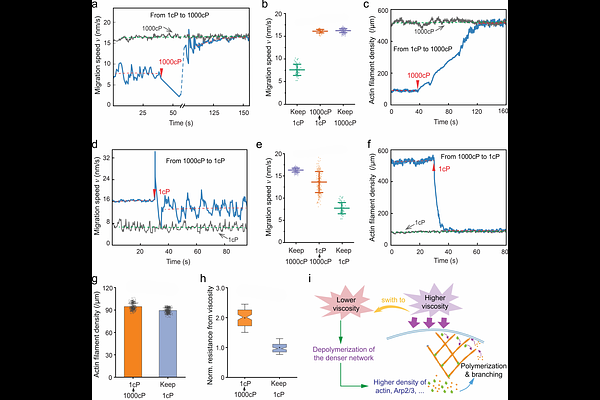Adaptive cytoskeletal responses to extracellular environment viscosity modulate cell migration

Adaptive cytoskeletal responses to extracellular environment viscosity modulate cell migration
Lin, Z.; Chen, X.; Feng, X.-Q.
AbstractCell migration is a pivotal process in metastasis, allowing cancer cells to invade surrounding tissues and disseminate to distant organs. While extracellular environment (ECE) viscosity serves as a critical modulator of cell motility, its regulatory mechanisms remain unclear. This study presents a mechanobiological model to investigate how ECE viscosity modulates cancer cell migration by regulating some key processes, including actin polymerization, retrograde flow, and adhesion adaptations. Our results reveal a biphasic response: a moderate increase in ECE viscosity enhances actin filament network density and adhesion strength, thereby accelerating migration, whereas excessively high viscosity hinders movement due to too large mechanical resistance. Furthermore, we identify a short-term migration memory phenomenon, where cancer cells exposed to high viscosity environments retain elevated migration speeds after transitioning to low viscosity conditions. This memory effect is sustained by the continued assembly of cytoskeletal proteins such as actin monomers and Arp2/3. These analyses reveal an adaptive mechano-chemo-biological mechanism by which cancer cells integrate and respond to mechanical cues from their viscous environment to optimize migration, and advance the understanding of cancer cell migration in various tissue environments.